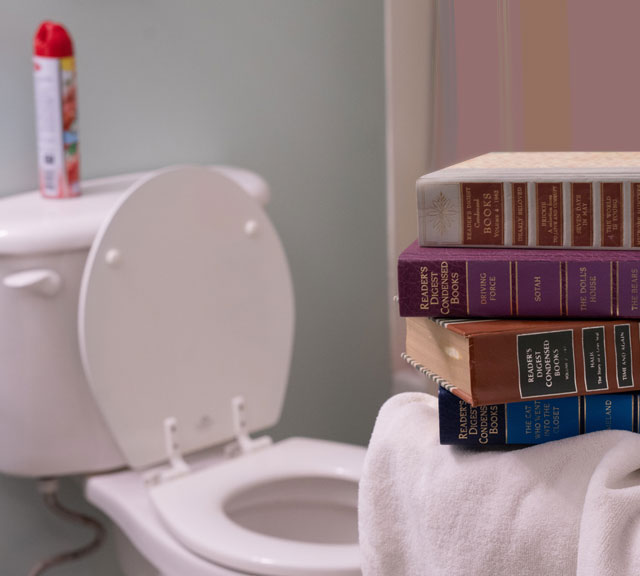Bathroom Reading: What You Can Learn from Your Poop

Find Your Perfect Match
Answer a few questions and we'll provide you with a list of primary care providers that best fit your needs.
It’s not something even the closest of friends are likely to talk about. But noticing how your stool looks can provide some important clues about your digestive health. So, before you flush, take a quick look at the color and consistency of your poop.
Here are some things that reading your poop can tell you:
Color
A change in the color of your stool is not usually a big concern. It could result from dyes or natural colors in the foods and drinks you consume. For example, eating blueberries or grape soda may turn your poop to a dark bluish color.
You do need to pay attention, however, if your stool is red or black or tarry. The red color could have a simple explanation, like red coloring from a drink, cereal, or beets. It also could signal bleeding in the lower part of your colon from inflammatory bowel disease, hemorrhoids, polyps, or other sources of bleeding in your digestive tract. Don’t discount blood in your stool as “just a hemorrhoid,” because the incidence of rectal cancer is on the rise among people in their 20s through 40s, according to the American Cancer Society. In fact, the risk of rectal cancer for people in this age group is four times that of their parents.
Black or tarry poop can result from taking iron supplements or a medication containing bismuth, such as Pepto-Bismol. It also could be a sign of internal bleeding higher in your digestive tract. For example, an ulcer in your stomach or small intestine could cause black or tarry stool.
Crohn’s disease can also cause black or tarry stool.
See your doctor if you notice these changes so you can determine what’s harmless and what needs medical attention.
Tips to avoid constipation and diarrhea include eating a healthy diet with fiber-rich foods such as beans, bran, and whole grains, drinking lots of fluids, and exercising to keep the bowels healthy and regular.
Frequency
Your bowel movements are in the normal range if you go between three times a day and three times a week. It should take little effort and no straining to eliminate the stool from your body.
More than three times a day often signals diarrhea, which can be a result of the digestive tract not functioning well due to bacteria, inflammation, or other causes. Having a bowel movement fewer than three times a week is considered constipation.
Tips to avoid constipation and diarrhea include eating a healthy diet with fiber-rich foods such as beans, bran, and whole grains, drinking lots of fluids, and exercising to keep the bowels healthy and regular. Using a stool softener or fiber supplement can further help with constipation.
Shape and Consistency

Your stool is the result of your diet, fluid intake, medications, and lifestyle. It consists of about 75 percent water. The rest is waste from what you consume, bacteria, and chemical substances made by your intestine and liver. Ideal stool is long, smooth, soft, and medium brown. It passes easily from your body.
If your poop is hard and shaped like small rocks or pebbles, it’s most likely a sign of constipation. This can happen if your large intestine isn’t working properly to form the stool.
Pencil-thin stool may happen occasionally, but if it’s a permanent change, it may indicate a blockage in your colon. See a doctor to rule out serious problems.
Greasy or oily stools could indicate that your body is not digesting fat well. Sometimes, conditions like celiac disease or problems with the pancreas can cause this change.
Smell
Spicy meals, meats, intestinal bacteria, and fatty acids all can contribute to the unpleasant smell of poop. Your body’s inability to easily absorb fats can also contribute to a strong, unpleasant odor. There’s usually no cause for worry, but talk to your doctor if you notice a change that concerns you.
Defining Good Bowel Function
Some signs of good bowel function include:
- After you first get the urge to go, you can hold your stool comfortably enough to get to a bathroom.
- You have a bowel movement within about a minute of sitting on the toilet.
- You can pass stool easily and without pain.
- You can empty your bowel in one sitting without having to go back to the toilet soon after.
About one in 20 people experience poor bowel control. If you have a sudden change in bowel habits, it’s a good idea to talk with your doctor.
Find Your Perfect Match
Answer a few questions and we'll provide you with a list of primary care providers that best fit your needs.
Source: Johns Hopkins Medicine; Canadian Society of Intestinal Research; Continence Foundation of Australia




